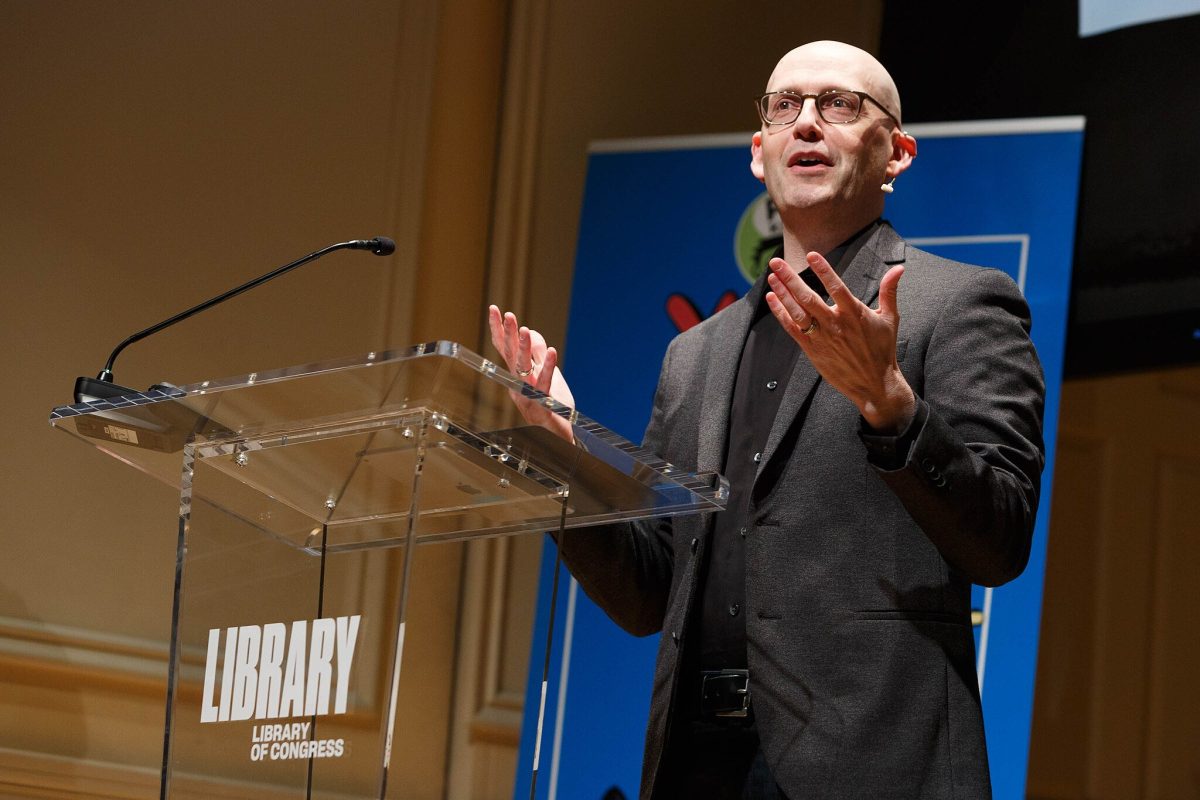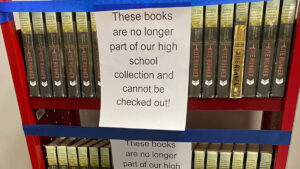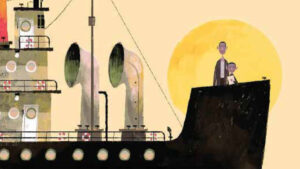Throughout the month of September, we invited authors and library lovers to share a cherished library moment or tell us what they value most about their library using the hashtag #HowILibrary. Thank you to everyone who participated. There have been some wonderful responses: Mo Willems, Lily Williams, Kelly Yang, Jenna Lee-Yun, and Meg Medina, to name a few.
Brad Meltzer is the New York Times-bestselling author of The Lightning Rod, The Escape Artist, and 11 other bestselling thrillers. He also writes non-fiction books like The Nazi Conspiracy, about a secret plot to kill FDR, Stalin, and Winston Churchill at the height of WWII, and the Ordinary People Change the World kids book series, which he does with Chris Eliopoulos and inspired the Emmy-nominated PBS KIDS show, Xavier Riddle and the Secret Museum. Meltzer’s ongoing series of kids books on heroes throughout history includes books on Ruth Bader Ginsberg, Mister Rogers, John Lewis, Albert Einstein, Rosa Parks, and many more. He is also the host of Brad Meltzer’s Lost History and Brad Meltzer’s Decoded on the History Channel.
Meltzer credits a librarian with introducing him to a world of wonder as a child and changing his life forever. He shared his story on social media this Library Card Sign-up Month (using the #HowILibrary hashtag) and has allowed us to share it here. It’s a wonderful memory. Thank you, Brad!
In honor of my old library.
I have a few rules I try to live by. One of them is: Mysteries need to be solved. Another is: You need to go thank the people who gave you your start. And so, let’s talk about this mysterious librarian.
I don’t know her name. I have no idea if she’s still alive. But when I was 10 years old, this mysterious librarian changed my life. You see, growing up, my family didn’t have a ton of money. But what we did have was my grandmother’s library card. It was there, in the public library in Brooklyn, New York, that I remember this librarian who pointed to shelves of beautiful books and told me, “This is your section.”
I almost fell over. I honestly thought she meant that all the books were mine (though, really, they were, weren’t they?). It was a day that made my world bigger and certainly better. And the best part was who she quickly introduced after that-a new friend, author Judy Blume. Superfudge was the first book I ever coveted. But it was Blume’s Are You There God? It’s Me, Margaret that rocked my socks. Since I was a boy, no one understood why I was reading it. But I was a boy trying to figure out how girls worked.
I’m still searching for that answer. But thanks to that book, I knew what a bra was. Key first step. From there, she taught me one of the greatest lessons in life-that you must love yourself for who you are. Today, that lesson inspires every children’s book I write in the Ordinary People Change the World series-I am Amelia Earhart, I am Abraham Lincoln, I am Rosa Parks. I wanted to give my kids real heroes-people just like themselves, which is what Judy Blume gave me.
Soon after, that librarian gave me Agatha Christie’s novel, Murder at the Vicarage, the first murder mystery I’d ever read. To this day, I still don’t know what a vicarage is. And I don’t want to. In fact, if you see me somewhere, don’t tell me.
Back when I was 10, all I cared about was that on those pages there was a body. A dead body. How’d it get there? Why did it happen? And the most vital question of all: Whodunit? I’ve been asking that question ever since writing my first thriller, The Tenth Justice, to my newest, The Lightning Rod.
Over the years, Agatha Christie taught me that stories aren’t the beauty of what did happen. They’re the beauty of what could happen.
Needless to say, for what that librarian gave me, I owe her forever, which leads me back to my original point. Mysteries need to be solved. To this day, I don’t know who that librarian is. So in her honor, I’m thanking you-all the librarians who’ve inspired us and changed our lives.
Today, there are thousands of kids out there who will never know your name. They may never track you down. But do know, they’re part of your legacy. And on their behalf, I’m saying thank you.
That’s #HowILibrary. Love you, American Library Association
Brad Meltzer
Photo: Library of Congress Life, CC0, via Wikimedia Commons



